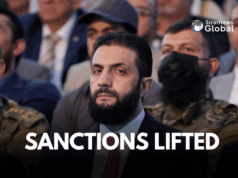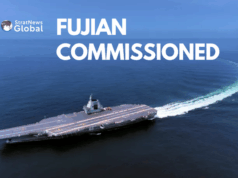China’s just-concluded annual political jamboree, commonly known as two sessions, threw up some surprises.
The press conference by the premier at the end of the legislative meetings, a three-decade old practice, was cancelled.
Many see this as a move to weaken the institution of the premier and consolidate more powers in the hands of Xi Jinping, the most powerful president China has had since Mao Zedong.
Second, the language on Taiwan was unusually strong. Last year, China had called for peaceful reunification of Taiwan with the mainland.
This year, the government’s work report said China will be “firm in advancing the cause of China’s reunification”. Which essentially means Xi Jinping isn’t prepared to wait endlessly.
Third, many thought China would get a new foreign minister. Wang Yi stepped into the breach after Qin Gang, Xi Jinping’s blue eyed boy, was removed from office just seven months into his tenure last year. But there was no indication that Wang Yi, a seasoned diplomat, will be replaced.
But a bigger surprise was in store when General He Weidong, who ranks third in the military hierarchy, told a PLA delegation that there was a need to crack down on “fake combat capabilities”, according to the South China Morning Post.
The general didn’t elaborate further but was it an admission that combat remains an area of concern?
Corruption in the Chinese military remains an issue. Just months after he was made defence minister last year, Li Shangfu disappeared from public view.
He was sacked in October and was also removed as a member of the Central Military Commission, the body headed by Xi Jinping, which commands the armed forces. He was also stripped of the rank of state councilor, a designation higher than a regular minister.
Before becoming minister, Li Shangfu was closely associated with China’s space programme. No official reason was given for his removal but the buzz is that he was being probed for corruption in procurement.
Just weeks before his removal, two top generals of the PLA Rocket Force, which is in charge of China’s nuclear arsenal, were sacked.
Many see this as Xi’s attempt to purge the military of corruption and send out a strong message that anyone who steps out of line will be taken to task.
Last week while meeting a delegation of the People’s Liberation Army and the People’s Armed Police Force at the two sessions, Xi called for new quality combat capabilities.
He also lay focus on the maritime domain, seeking efforts to coordinate maritime military preparedness, and protect China’s maritime rights and interests.
This may be a signal that China’s next conflict zone would either be in the Taiwan Strait, the South China Sea or both.
According to an annual threat assessment report by the US Intelligence, Taiwan is a significant potential flashpoint for confrontation between the PRC and the United States as Beijing claims that the United States is using Taiwan to undermine China’s rise. Beijing will use even stronger measures to push back against perceived increases in US support to Taiwan. The report also says China will press Taiwan on unification, an effort that will create critical friction points with the United States.
At six feet and over, cool, calm and always collected. Never a hair out of place. He is the high priest of editorial facts, grammar is his baby and headlines are meat on the bone. Loves samosas and cricket, tracks Twitter and when in his cups, nothing better than Jagjit Singh’s ghazals.




